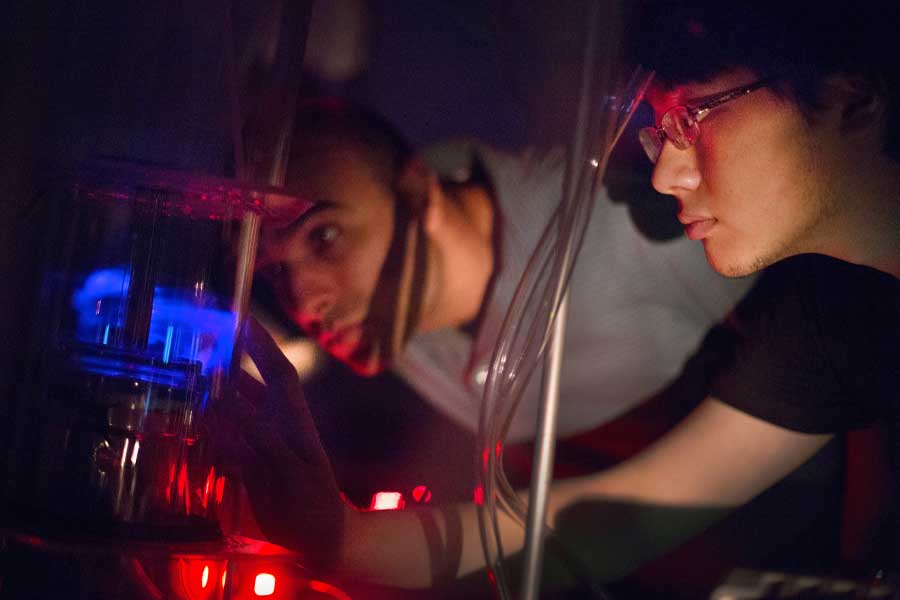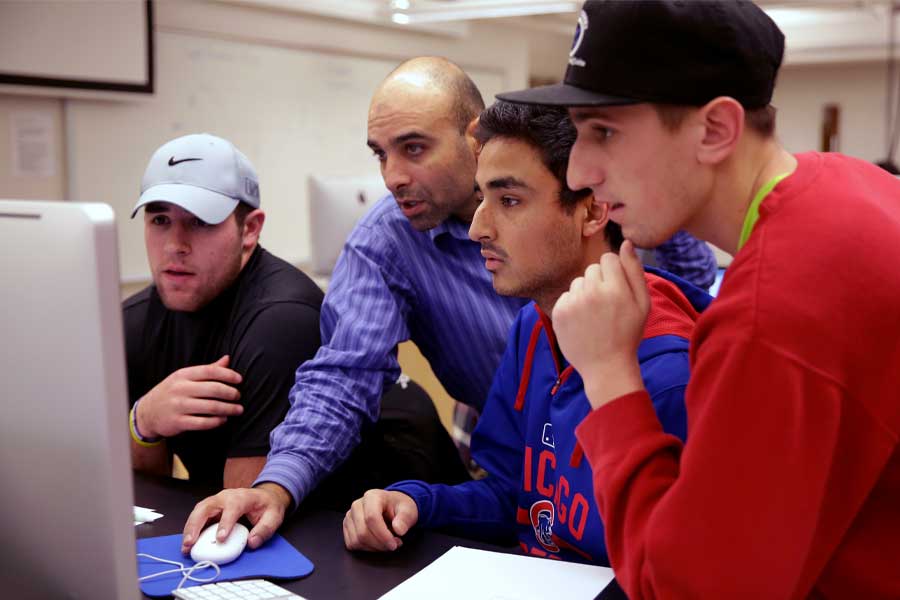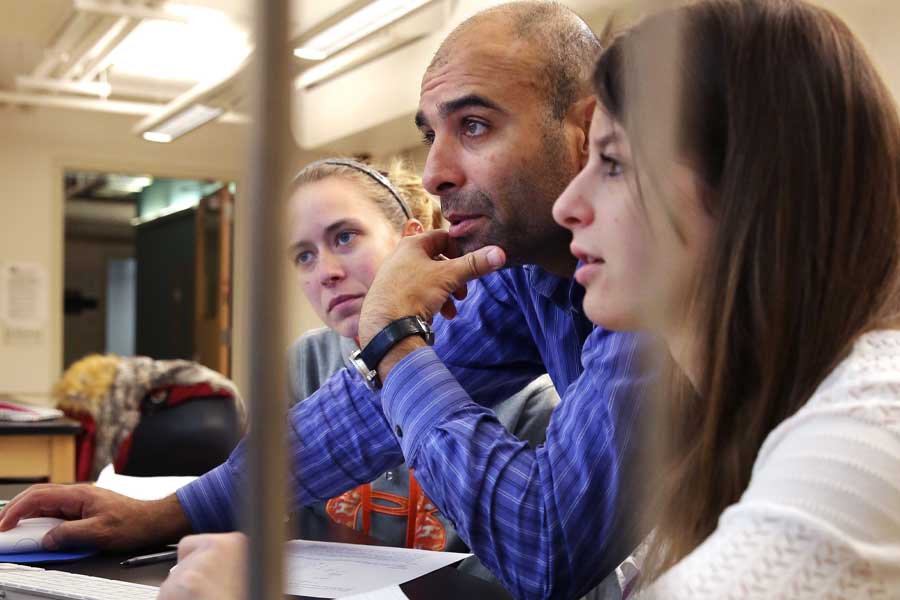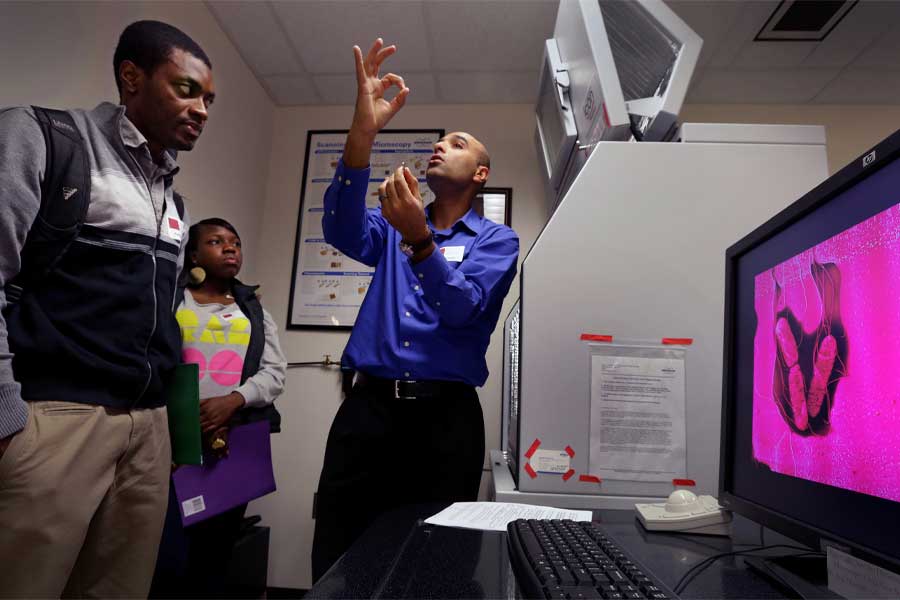Jalal Nawash
April 05, 2021
Written by Craig Schreiner | Photos by Craig Schreiner
In Great Teaching, Jalal Nawash, associate professor of physics and director of the Undergraduate Research Program, tells how physics is a timeless journey of discovery.
“My science teacher in third grade (was a great influence). I want to teach because I want students to become aware of the elegance of the universe we live in. I would like them to know about the opportunities that are waiting for them to discover. I want to teach about science so that they can have a better life, so that they can think for themselves, and be independent. I want my students to be curious and inspired to take on future challenges. I want my students to not only find a good job but to create one.”
“I also like to teach so that I can learn myself,” said Nawash. “I chose UW-Whitewater because it values a healthy relation between faculty and students where small classes are available and students’ engagement is maximized.”

Cold atmospheric plasma glows purple inside a vacuum chamber in Jalal Nawash's lab as he works with Junxiang "Isaac" Xu, right, who has a Summer Undergraduate Research Fellowship grant to explore the process of coating stainless steel with an organic film that could make medical implants like pins, rods and screws used to join bones more adaptable to the healing process.
Nawash teaches two classes: Introductory Physics for non-majors, and Modern Physics for physics majors.
“Both of these classes are wonderful. While the students in the first class try to understand most basic phenomena around us like why the sky is blue, or what happens when you push an object, the Modern Physics class takes on a journey through time over the last 200-300 years that brings us back to what we have today. Did you know that a small observation from a person working in a kiln 150 years ago set the ‘revolution’ of what we know today about quantum mechanics and its endless applications — from MRI to quantum computing? And still, many applications are waiting to be discovered because of that.”

Jalal Nawash, second from left, works with biology majors Tony Gumina, Ankur Shah and Daniel Sladky in a lab experiment on simple harmonic motion.
“I think there are moments that students and teachers alike can never forget. Many years ago, I was explaining a physics concept to a freshman engineering student. It did not seem that she grasped the concept yet. So, I started explaining it again and I can tell that she was listening to every word I said. At the end she asked me a question about something I said, and she was expecting my answer to be yes. When I said ‘yes,’ she said ‘oh my gosh, I understand now….’ She was literally jumping and clapping her hands with all the happiness radiating from her face. That moment for me (and the student) will always be with me.”

Nawash, center, works with biology majors Jenny Case, left, and Katrina Hanrahan on a lab experiment in a physics laboratory in Upham Hall.
“For me, the pandemic was an opportunity to break from my old habits. I had to learn how to teach online and remote in a couple of weeks. I miss the face-to-face interaction with my students. I got COVID myself and still have some lingering effects.”
“In this year, however, we learned so much about ourselves and what humans can do when under pressure. I have a clearer understanding of why humans survived despite all wars, injustices, famines and pandemics. Despite the constant noise in the background, many hard-working people stay the course to work hard for humanity.”

Jalal Nawash, right, explains atomic force microscopy, which enables the imaging of small molecules and atoms, in a classroom of students attending a nanoscience symposium.
WHY I TEACH is a series about the dedicated professionals at the University of Wisconsin-Whitewater, including professors, coaches, advisors and other staff members, who make every day a teachable moment — and every place a learning place — by their expertise and example.

